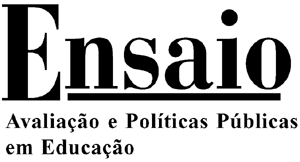This article presents a description of the methodology of "A longitudinal study of quality and equity in brazilian Elementary Education: GERES 2005". The GERES study is still being developed and its principal characteristic is the monitoring of a group of pupils throughout their first four years of Elementary Education. Five cities are taking part in the study: Belo Horizonte (MG), Rio de Janeiro (RJ), Salvador (BA), Campinas (SP) and Campo Grande (MS). The study started in 2005 and it involves the application of Reading and Math tests, as well as the application of context questionnaires to pupils, teachers and the principals of schools which take part in project. Item Response Theory has been used to equalize the scales for the different periods of schooling (years or their equivalent) in order to obtain a proficiency growth curve for each pupil for the period of the study. The GERES project aims to investigate those classroom activities and school conditions that contribute to the promotion of school efficiency and equity, having the use of multileveled models as analytical approach.
Longitudinal study; Educational assessment; School efficacy and equity; Multileveled models




